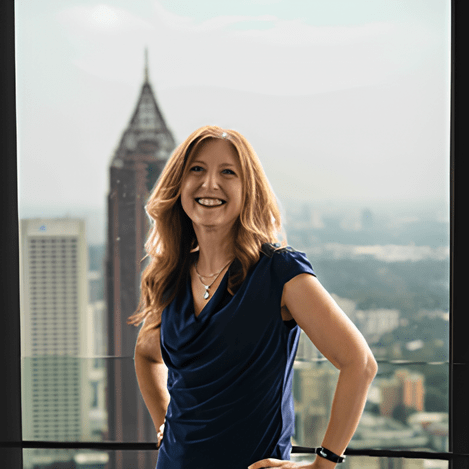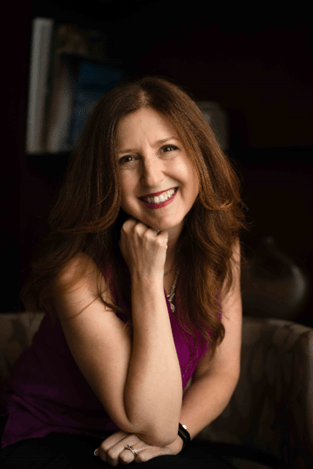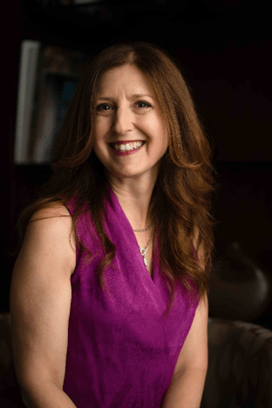
Janet Philbin: Courage to Connect Through an Inner Revolution
Within this Global Woman Magazine article, we delve into the healing teachings of “Show Up For Yourself: A Guide to Inner Awareness and Growth,” a book that illuminates the path to reconciling with our inner child and unshackling the depths of our unresolved emotions.
Janet shares transformative insights on healing as a layered journey, advocating for compassion towards our younger selves to provoke personal growth and healthier relationships. Alongside, we explore conscious parenting, and the profound role of hypnotherapy in healing with the Krysalis Institute. Join us as we navigate the intricate dance between self-awareness and inner peace, offering not just insights but actionable guidance for anyone looking to foster tranquillity and transformation in their life’s narrative.
Can you share with us the core concept behind your book, “Show Up for Yourself: A Guide to Inner Awareness and Growth,” and how it relates to healing emotional wounds stemming from the wounded inner child?
The core concept of my book, Show Up for Yourself, is that healing is possible. I fully believe that healing is an inside-out job. Due to this belief, I have developed an inside-out process called The Spiral of Healing to help people understand that healing happens continually and in layers.
This understanding will help people who are ready to listen to their pain and give it a voice they can hear outside of their own heads. We do this by listening with our hearts to ourselves with compassion and understanding.
This relates to the inner child because the pain we feel on the inside is the pain of our inner child. I call that inner child the wounded inner child. It is our job as adults to rescue the wounded inner child. to hear, see, validate, and love them.
It is up to us to understand what they went through as children and come to a place of compassion and forgiveness for them. All of the coping skills you developed at the time of a childhood trauma were not developed to hurt your adult self but were your survival skills at the time and have become your coping skills as an adult.
Therefore, when you become upset, triggered, and reactive in your adult life, you are not responding with the wisdom and experience of your adult self. You are reacting with the emotionally charged coping skills of the wounded inner child.
This phenomenon occurs because the unconscious mind has no sense of time and as a result the wounded inner child becomes activated, taking over your adult life when feelings similar to those from childhood are evoked in the present moment.
When we rescue the wounded inner child and bring them back home to our adult-loving heart, then that inner child no longer must keep the old, maladaptive coping skills and can finally rest. It is then that the adult self can learn new coping skills appropriate for the time in your life that you are in now.
This healing has the ability to result in an improved mood, less stress, and improved relationships in all areas of your life.
Your work involves helping clients uncover and heal the issues of their inner child. Could you explain how addressing these issues can lead to personal growth and better relationships with oneself and others?
I would be happy to explain how addressing the issues of the inner child leads to personal growth and better relationships with oneself and others. I would like to continue to expand on what I have already shared about the inner child in response to your previous question.
When someone can recognise that their coping skills came from a time in their life when they were young, in crisis, scared, alone, sad, or traumatized, it is usually easy to find compassion. Who would not have compassion for a five-year-old child who was left alone with a stranger and was scared, or a seven-year-old child humiliated by a teacher in front of a classroom, or a 10-year-old child who was repeatedly abused by a parent?
Any one of us would have compassion for these children. The reality is that those children were you or a version of you. Once the adult self can have compassion for the pain of their younger child, their wounded inner child, then healing can begin. Compassion opens up a window in your heart, which allows you to access your empathy and understanding for your inner child.
You can then let that child know they are loved and that they did the best they could with the resources they had at the time to survive, because that is just what they did—survive! The healing paradigm I bring my clients through is that we rescue the wounded inner child and let them know they no longer have to do all the adulting.
That they can finally rest and that there is actually a fully mature, wise, successful adult self who will now deal with all these issues. This is a huge relief for the inner child. Once that healing happens, new coping skills are given, which can be activated in the adult’s life.
As a result, your relationship with yourself will improve. You will feel more confident, more joyful, calmer, safer and much more. Because of these improvements you will then be able to be more successful and less reactive in your relationships and in all areas of your life. It is truly healing at a cellular level and what I call a Soulular level because this healing happens at a place deep inside of us which allows for tremendous change and growth.
Could you walk us through the key principles of conscious parenting and how it can impact the parent-child relationship?
There are many principles in conscious parenting, and it would be impossible to go through all of them here. However, I will share a few of my favourite concepts that I feel are the most powerful. I would like to give credit to Dr. Shefali for these concepts, as I have learned them through her many books on the subject and through her Conscious Parenting Coaching Method Institute, of which I am a graduate and now an advisor for current students in the program.
First, one of the most important concepts about conscious parenting is connection over correction. This means when your child is “acting out,” you first ask what the unmet need under the behaviour is that I am seeing and ask yourself how I can connect with my child at this moment.
Finding a way to allow your child to know they are seen and heard will have a greater positive impact on changing their behaviour than a punishment. Punishing your child tells them they are bad; connecting with them lets them know you see they are struggling and want to help them do better and feel better in the moment.
Secondly, you always have a choice to accept, change, or leave it. To accept means you fully accept the moment you are in for what it is, as it is, and work with what is happening in front of you. To change means you are not accepting this situation, and you are going to exert your power and control over the situation to change it. To leave means to pause.
You stop. You assess or reassess the situation. Maybe you will decide to leave the room or walk away from a situation (if the children are safe), and then you can return when you are calm and ready to begin again. It is beautiful to remember that the choice as to how you will respond is yours. This takes the blame from the child and puts the responsibility on you, the parent.
Third, be aware of your triggers. This means that as a parent, it is up to you to check in with yourself and ask, “What is coming up within me when my child is doing something I find upsetting?” How am I reacting to being upset, and what can I do to take care of myself at this moment? It is your responsibility as a parent to recognise your trigger and find ways to feel more regulated so you can be there for your child in a way that is supportive of them.
Finally, remember that all children want to know they matter, that they are seen as important, and that they are loved. It is up to us to make this happen. When you recall that all behaviour is a communication of an unmet need, you can separate the child from the behavior, connect with the child, and remove the focus off of the behaviour and back to the person in front of you, your child.
You run a Hypnotherapy training program through your not-for-profit organization. How does hypnotherapy play a role in transformational healing, and what can people expect from your training program?
The not-for-profit I co-run with my two colleagues, Paul Risi and Franziska Bernhard, is called the Krysalis Institute. At the completion of the 100-hour training program, students will be certified hypnotists and hypnotherapists through the American Board of Hypnotherapy.
I have been a practicing hypnotherapist for 22 years and have seen the powerful role hypnotherapy has for people in their transformation and healing when you can help someone resolve emotional conflicts at the source of the trauma or painful life experiences. The unconscious mind has no sense of time. Because it has no sense of time, we interpret events in our current life with the wisdom and coping skills of our younger self who lived through a similar emotional experience.
When we experience emotional pain now, a trigger, a part of us from long ago, or maybe not so long ago, gets woken up, what I refer to as getting “poked”. When we get poked, an older part of us is “woken” up and we react using the old coping skills which are not effective or most of the time not appropriate in the present moment.
In the hypnotherapy paradigm I practice and teach, we help people heal these emotional wounds, free the emotions from the energy of the physical body, and put new, strong, effective coping skills in place that work for the clients in their adult lives now.
The inner child learns it can let go of these “old jobs” it has been doing because there is now an adult available to do these things and take care of the adulting in the present. Our students learn the principles, philosophies, and skills of hypnosis.
They learn effective hypnosis strategies and how to effectively employ them in the healing paradigm, and they are taught how to help clients heal with these skills and techniques.
In your extensive career as a clinician, what are some of the most common emotional wounds or issues you’ve encountered in your clients, and how do you typically address them?

Thank you for this question. Two of the most common emotional wounds I hear from my clients are the beliefs that “I am not enough” and “I am not loveable.” Both of these emotional wounds are beliefs that are developed about the self at a young age, usually under seven years old. I treat all of my clients through a trauma-informed lens.
That means when I am hearing the stories of my clients’ lives, I am carefully listening to them and hearing the aspects of them that have suffered emotional injury. Many times, my clients do not view their life stories as traumatic if they have not experienced in their lives what would commonly be considered traumatic, like parents’ divorce or a parent’s death, accidents, or abuse.
The emotional wounds that lead to the belief of not feeling you are enough or not lovable can come from trauma or a seemingly benign place like being picked last for a team, not getting the part in a school play, having no one to play with, having parents who ignore you and favour another sibling, or almost any other childhood occurrence where the child felt their feelings, or they just did not matter.
When this is someone’s lived experience, they internalize the way they are treated and come to believe it as the truth about who they are. They believe something must be wrong with me, it is my fault I am not loved, and I am not enough.
I tend to address these deep-rooted belief systems by working with the client’s inner child, the younger self that still lives inside of them, in order to deconstruct and understand what was happening in their life at the time that these feelings, thoughts, and beliefs developed.
I find hypnotherapy to be the most effective intervention to help my clients heal from the traumas and difficult life events. What I also find very effective in helping my clients find healing and resolution is to help them connect with their bodies.
We hold all of our emotions in the body, and when we can access the cellular memory of the body, we can find the energetic and emotional blocks to release them and heal the body.
You’ve been involved in conscious parenting coaching and have worked with Dr. Shefali Tsabary. Can you tell us about your experiences and insights gained from this collaboration?
I graduated from Cohort One of Dr. Shefali’s Conscious Parenting Coaching Method Institute in 2019. Learning with and from Dr. Shefali was a life-changing experience for me. Conscious parenting focuses on healing the parent and looking at yourself as a parent in order to connect with your child. When you can connect with your child, you can honour their spirit, their individuality, and their unique needs from a place of wholeness and authenticity.
Learning the philosophy and methods of conscious parent coaching not only helped me as a parent, but the skills I learned directly translated into my work as a psychotherapist with my clients. Conscious parenting offers you a new lens to look through to see yourself and others with.
I was very fortunate to be able to be a student in the first cohort of the coaching institute. I was so inspired and motivated by all that I learned. I was offered the amazing opportunity by Dr. Shefali to become an advisor to students as they go through the program.
As an advisor, I can get to know the students to help them deepen their learning, answer their questions, provide academic support, and explore the concepts with them when they struggle. I, along with the other five advisors, support Dr. Shefali throughout the 20 weeks of the institute.
This opportunity has enabled me to meet students from around the globe and to understand the unique and not-so-unique experiences of parents no matter where they live. As an advisor, the students become introduced to me and my work as an author, therapist, and hypnotherapist. It has been very humbling and exciting to have the opportunity to connect with people and impact them in a positive way, both personally and professionally.
Your bio mentions that you’ve been a guest on various podcasts and have spoken at summits. Could you share a memorable moment or key message from one of these appearances that had a significant impact on your audience?
Thank you for this question. I enjoy being a guest and speaker on podcasts and at summits, as it gives me the opportunity to get my message about healing out to a wider audience and an audience who may never have heard of me before.
One opportunity I had in 2022 was a highlight for me. I was a speaker at the Go All In Fest. This was the first opportunity I had had to be at an in-person event to speak about my work since the pandemic had ended.
At this event, I was able to share and teach how a parent can stop yelling. I taught my method of tuning into what is happening within them in a moment of upset by finding a purposeful pause and coming back to the present moment.
I received a lot of positive feedback from the attendees, as they did not realise how the unconscious mind has no sense of time and how, because of this phenomenon, we become emotionally hijacked in the present moment.
The audience also found a lot of value in the concrete skills I taught to bring them back to the present moment when emotionally poked. We tend to get emotionally hijacked by our past emotionally charged events, and this is because the unconscious mind has no sense of time.
Having the opportunity to share and teach some of what I do to a live audience was thrilling. I love connecting with people in person and speaking at events to inspire and support others.
You specialize in areas such as PTSD, infertility, depression, and anxiety. How do your therapeutic approaches differ for these specific challenges, and what successes have you seen in helping individuals overcome them?
Yes, I specialise in a number of areas when working with individual clients. In all of my work with my clients, in considering their presenting problems, I take a trauma-informed approach to their treatment.
What this means is that with each client, I take the time to acknowledge and understand their life experiences from their perspective. In doing so, my clients feel heard, seen, and important, and they know that their experiences matter to me. Providing treatment with a trauma-informed approach allows me to tailor my interventions.
I meet the specific needs of my clients in a safe, supportive environment while keeping in mind their emotional safety. I support them in improving their mood, coping skills, decreasing stress, and healing from their traumatic and upsetting life experiences. One treatment modality I use most often, when appropriate, is inner child-focused hypnotherapy.
This means I gently guide my clients through hypnosis or employ hypnotic techniques in a safe way to observe the painful events in their lives. Doing so empowers them to reclaim the lost parts of themselves that are in pain, find a path to healing, and allow for the development of new, effective, positive coping skills in their lives now.
As an author and contributor to the book “Boy Moms: Collective Tales of Mothers and Sons,” can you tell us about the importance of storytelling and shared experiences in personal growth and healing?
First, allow me to say what an honour it was to be asked to be a contributing author to the book, Boy Moms. I share the pages with amazing, smart, vulnerable women who bare their hearts in sharing their sons with the reader. Storytelling is important because it allows space for the voice in your head to be heard outside of your head. We are so used to listening to our own narrative and the commentary we tell ourselves that we lose objectivity. In my opinion, sharing our story with others serves two purposes.
Primarily, it allows us to be an objective observer and gain some perspective and space from our thoughts and feelings about ourselves and the story. When we have space and can be objective, we are given the chance to learn something about ourselves. Second, when we share our story with others, we are giving them a chance to see parts of themselves reflected in them through you.
This can also be healing because the reader’s story or experience may be similar to yours, the storyteller. This offers the reader an invitation as they begin to identify with you. When they read that you handled the situation differently than they did, it gives them a chance to explore their reactions and consider other ways to cope or other techniques to employ going forward when faced with similar challenges.
Story sharing gives the reader a chance to learn not only about you but also about themselves. I hope the story I shared in Boy Moms helped some moms or dads understand themselves better. When you begin to understand yourself, you can begin to cultivate compassion. Self-compassion is one of the first skills we develop when we begin to find healing.
When we can approach our pain with an open heart and allow for the knowledge that we did the best we were able to at the time with the resources, coping skills, and ability we had at the time, we are taking the first step to learn a new way.
When you have self-compassion, you can more easily find and hold compassion for others, especially their children. I hope that reading my story and struggle offers permission to parents to have self-compassion and forgiveness and to be able to access this within themselves, especially when their child is struggling to deal with difficult emotions.
Could you discuss the role of self-awareness in the healing process and how individuals can begin their journey toward greater inner awareness and growth?
I believe all of us want to find ways to feel better, calmer, more joyful, and more grounded and balanced in our day-to-day lives. Sure, we will have moments or even days where we do not, because life, as I like to say, gets in the way. When we can quickly regain our equilibrium, we can find balance and calm in our day-to-day lives.
One of the key components to creating this balance is cultivating your own self-awareness. To me, being self-aware means paying attention to your body. I do not mean your physical appearance.

I mean your internal landscape. Our bodies never lie to us. There is now enough research out there that validates that we hold our stress and our emotional reaction to external events and stressors in our physical bodies. In order to cultivate self-awareness, you have to be able to pause long enough to tune into your internal world.
For example, if your child yells at you, what is your first reaction? Do you immediately yell at them, or do you pause? If you immediately yell, you are not aware of what just happened within you when something outside of you occurs. You see, all of us have an immediate response, internally, to external stimuli.
Now, if it is life or death, we need to react. We are not going to let our children run into traffic; we will grab them and pull them to safety. However, if you are always in a stress response or flight/fight mode, then you are always reacting with an alarm going off inside of you in an indiscriminate way, no matter what the external stimuli are.
I teach people to take a purposeful pause. This means to take a minute to breathe, to do a body scan with your mind’s eye, and to locate where in your body you are experiencing this upset from the event that is occurring in front of you. Maybe you have a knot in your stomach, a pain in your chest, or tightness in your jaw.
Identifying the physical reaction is the first step. Then it is up to you to take a few minutes to breathe some more and talk to that upset part, ask it what it needs, and let it know you are safe now and that your adult self can approach this experience in a calm way. You first take care of yourself, which helps to decrease stress and increase feelings of calm. Once calm, you can go respond to the person or event.
This is self-awareness. Being aware of your inner emotional world and the physical responses you have is the beginning of your emotional growth. The more consistent you are in bringing your awareness from the external to the internal, the more calmly and successfully you will be able to develop and cultivate your own healing experience to improve your coping skills and interactions with others.
APPLY TODAY
100 Top Global Women Entrepreneurs – Global Woman Magazine
Our Journey in 12 Months:
Our Journey in 12 Months – Global Woman Magazine
5 Things That Show Money is Not Evil:
5 Things to Show That Money Is Not Evil – Global Woman Magazine
Global Man Magazine Page:
Global Woman, Global Man: Socials:
Global Woman Magazine (@global_woman.magazine) • Instagram photos and videos





